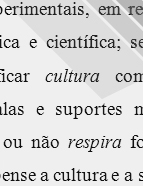

................................
Silvestre Pinheiro Ferreira, seen as a master by Herculano, wrote "Reflexões sobre o método de escrever a história das ciências, particularmente o da Filosofia" ["Reflections on the Method of Writing the History of Sciences, particularly that of Philosophy"] (1844) in line with his concerns about the philosophy of language and philosophical language ("Considerações sobre a gramática Filosófica" [Considerations on Philosophical Grammar] 1813, Essai sur la Psychologie, comprennant la théorie du raisonnement et du language, 1826), leading Joaquim de Carvalho in his analytical survey of philosophical historiography (1946) to examine him more as a philosopher linked to the "spirit of the system" than a historian of ideas. While monographs were rare, the teaching of the history of philosophy at the former Colégio das Artes was notable for opening, against the trend, the philosophical foundations of cultural inquiry that did not abstract from a broad rational basis and metaphysical dispute. A new literary and historiographical sensitivity would be born for the knowledge of the customs of peoples and their linguistic (romances) and psychological particularities. Cultural historiography was still far off, but the pedagogical vein opened by Romanticism with Almeida Garrett (Da Educação [On Education] 1829), in a "brilliant intuition" probing the "Portuguese innards" (O. Martins, Portugal Contemporâneo [Contemporary Portugal] II), appealed to the mediation of national mythologies (Catroga & Archer, Sociedade e cultura portuguesas [Portuguese society and culture], 1996); although the inventions and ideas of national cultures throughout the 19th century did not disguise the lack of consistent and continuous cultural practices. The term "national art" was only coined in that century, and "national culture" also became popular at that time: popular culture, moulded in the legendary soil of Romantic cultivation, was chosen by Garrett in the Romanceiro [Collection of ballads], Cancioneiro Geral [General Songbook], and D. Branca, by Herculano in Lendas e Narrativas [Legends and Narratives] and in the historical novel, a modality of an intimate nature and the psychohistory of everyday life. While fiction, in the historical melodrama and diegetic romance exhausted by ultra romanticism, sought quests and readings, it lost all its methodological plan in narrative fantasy and genre canon. A paradigm of institutional inquiry, it is from the História da origem e estabelecimento da Inquisição em Portugal [History of the origin and establishment of the Inquisition in Portugal] that in the twilight of the 19th century, the vein of studying cultures, marginal until then in historiographical terms, such as Jewish and Islamic cultures (M. dos Remédios, A. Baião, J. Lúcio de Azevedo, C. Michaëlis, J. de Carvalho, Israël Révah, A. J. Saraiva, A. Borges Coelho, etc.), emerged.
